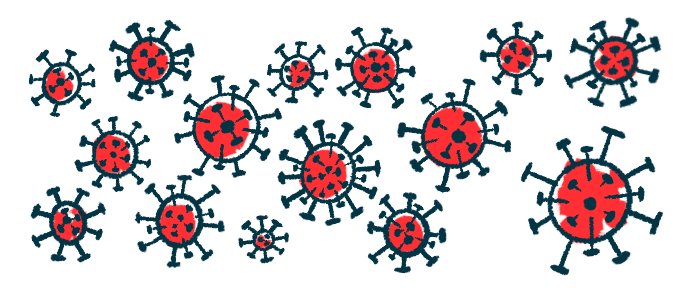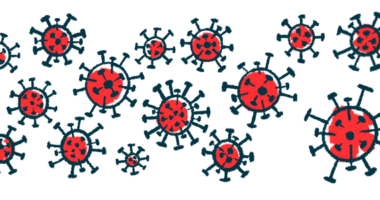Only Moderate Immune Response for CoronaVac Vaccine in AAV
COVID-19 vaccine found safe, but booster needed for good immune response

The CoronaVac COVID-19 vaccine has an excellent safety profile, but generates only a moderate immune response in people with ANCA-associated vasculitis (AAV), a clinical trial analysis found.
Although the levels of vaccine-induced antibodies against SARS-CoV-2, the virus that causes COVID-19, declined over six months, a booster shot was shown to generate a good immune response.
“The booster dose was effective in increasing [the immune response] in [participants] 6-months after the first vaccine dose, reinforcing the recommendation of this strategy for this group of patients, as suggested by the [Centers for Disease Control and Prevention],” the researchers wrote.
The team noted that the vaccine had no impact on disease severity; likewise, disease severity did not influence the vaccine’s immune response.
However, the use of immunosuppressant glucocorticoid medications by these AAV patients reduced their immune response to CoronaVac, data showed.
Testing the CoronaVac vaccine
Data from the clinical trial analysis was detailed in a study titled “Anti-SARS-CoV-2 inactivated vaccine in patients with ANCA-associated vasculitis: immunogenicity, safety, antibody decay and the booster dose” and published in the journal Clinics.
CoronaVac, developed by Sinovac Biotech, is a vaccine containing whole inactivated virus that’s used to prevent or reduce the impact of a SARS-CoV-2 infection.
Although several studies have evaluated the efficacy and safety of COVID-19 vaccines in other autoimmune diseases, none have focused specifically on AAV — a group of autoimmune disorders whose hallmark is inflammation and damage to small blood vessels.
That research gap led scientists at the University of São Paulo, in Brazil, to assess the safety, effectiveness, and booster dose response of the CoronaVac vaccine in adults with AAV. The team also examined the impact of disease severity and immunosuppressive treatments on vaccine responses.
Data were analyzed as part of an ongoing Phase 4 study (NCT04754698) evaluating the CoronaVac vaccine in a large group of people with various autoimmune diseases, as well as HIV infection. SuchPhase 4 studies are done to monitor the safety and efficacy of medicines after their approval.
The team identified 53 AAV patients and 106 age- and sex-matched non-AAV controls who received two doses of CoronaVac. Among them, 43 AAV patients and 93 controls were eligible for further study and were invited to participate in antibody decay and booster dose studies. A total of 32 AAV patients completed the protocol.
In the 43 AAV patients, six weeks after the second vaccine dose, blood tests revealed moderate seroconversion rates, which were lower compared with those seen in controls (65.1% vs. 96.8%). Seroconversion (immunogenicity) is the generation of high levels of vaccine-induced antibodies against SARS-CoV-2.
More than half of the AAV patients had anti-SARS-CoV-2 antibodies that neutralized the virus in tests — a proportion also lower than that of controls (53.7% vs. 80.6%). However, after the second vaccine does, the median neutralizing activity of the antibodies was similar in patients and controls (69.3% vs. 61.2%).
Seroconversion rates were similar between AAV patients without disease activity — as assessed by the Birmingham Vasculitis Activity Score (BVAS) — and those with some disease activity, defined as a BVAS higher than zero. The level of BVAS disease activity was comparable before vaccination to after the second vaccine dose, demonstrating the vaccine did not influence disease activity.
Immunosuppressives found to reduce immune response
Researchers noted more frequent use of immunosuppressive medications, in general, in AAV patients without seroconversion than in those with seroconversion (93.3% vs. 53.3%). This was similar to treatment with the immunosuppressant mycophenolate mofetil, sold as CellCept (20% vs. 0%). There also was a non-significant trend of more frequent prednisone use in patients without seroconversion (60% vs. 28.6%).
Testing negative for antibodies that neutralized the virus occurred more often in participants who used prednisone (57.9% vs. 18.2%) and immunosuppressive medications (84.2% vs. 55.0%) than in those who tested positive.
Although eight patients had received rituximab, sold as Rituxan, statistical analysis showed that only prednisone use was associated with lower seroconversion rates and lower neutralizing antibody positivity.
Among the 32 AAV patients who completed the full protocol, antibody levels declined over six months with a trend of a 15.7% reduction in antibody positivity. Similar results were seen for a matching control group of 32 individuals, showing a decrease of 18.7%. There was no change in the neutralizing antibody positivity in the AAV group, but a significant reduction was seen in the control group.
A booster dose given after the six-month assessment showed a 21.9% increase in anti-SARS-CoV-2 antibodies in AAV patients 30 days later, and a 18.7% increase in controls. Regardless, AAV patients still had lower levels of antibodies than controls after the booster, the team noted.
Neutralizing antibody positivity followed a similar pattern, with a 34.4% increase in AAV patients after the boost, representing a 1.4 times increase, and a 68.8% increase in controls, similar to before the boost.
Researchers assessed vaccine safety in 53 AAV patients and 106 controls who received at least two doses. No serious adverse events occurred in either group, and the adverse events were similar. After the first dose, there was a higher prevalence of malaise, muscle aches, and sneezing in AAV patients than in controls. After the second dose, events were similar between the two groups.
After the booster dose, only mild adverse events were reported in 12 AAV participants (37.5%) and six controls (18.8%). COVID-19 disease occurred in one AAV patient and two controls, all with mild symptoms and no need for hospitalization.
“This study provides novel data on moderate immunogenicity and an excellent safety profile of CoronaVac in AAV patients,” the team wrote. “A six-months mild antibody waning was observed with a good response to the booster dose, although levels remained lower than [controls].”








